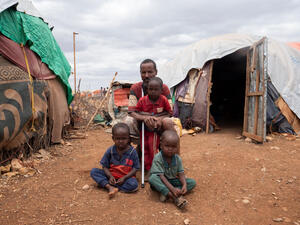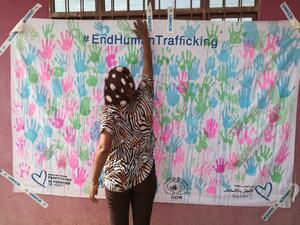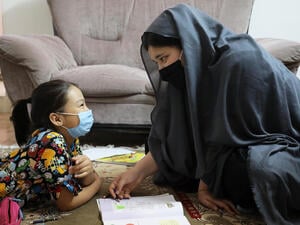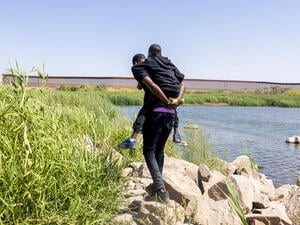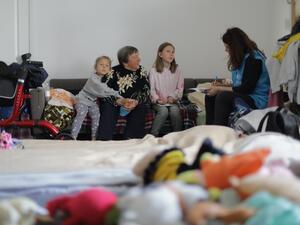Mexico faces challenges protecting refugees in mixed migratory flows
Mexico faces challenges protecting refugees in mixed migratory flows
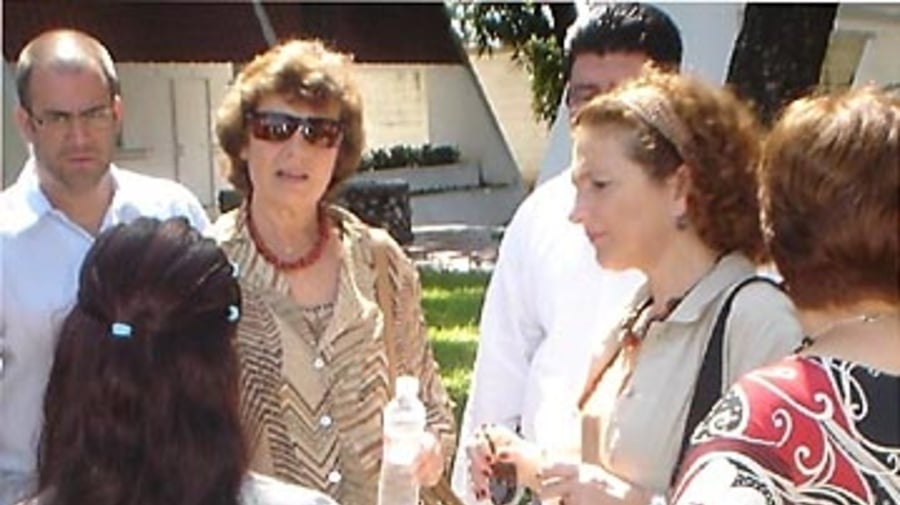
UN Assistant High Commissioner for Refugees Erika Feller (with sunglasses) meets an unaccompanied child in Tapachula, southern Mexico.
MEXICO CITY, Mexico, November 10 (UNHCR) - Assistant High Commissioner for Refugees Erika Feller has said Mexico faces a major challenge protecting refugees as the country becomes more important as a migration route to North America.
Feller, who flew out of Mexico City on Thursday, discussed refugee issues and challenges posed by mixed migration flows during a five-day visit. At an international conference here earlier this week, she praised Mexico's long record of providing asylum to refugees while noting that in the 1980s, when the country hosted more than 40,000 refugees, migration was hardly an issue of debate.
"Today, the changing face of irregular migratory movements puts new challenges to refugee protection. Migration and asylum are distinct phenomena. But they are becoming increasingly interlinked, as refugees are travelling alongside migrants to reach a safe place," Feller said on Monday at the opening of the World Conference of the International Association of Refugee Law Judges. "Refugees may often have no other way to flee but using the same channels, which are usually clandestine," she added.
Noting that there was now a mass exodus of migrants from Central America through Mexico towards the United States and Canada, Feller said: "The pressure this entails puts the humanitarian principle of refugee protection in danger." She added that Mexico had a significant role to play in fulfilling its obligations to vulnerable refugees caught up in mixed migration movements, particularly in the southern border area.
"Mexico, as an important transit country, faces great challenges in the protection of asylum seekers and refugees. States must control their borders. Yet, while doing so, they must guarantee that those people among the flow of migrants who flee persecution have access to asylum and international protection in the context of the global phenomenon of irregular migration," Feller said.
During her visit, Feller also met Mexican Senate's Human Rights Commission and visited the southern city of Tapachula, where UNHCR opened a field office in 2003. She met asylum seekers and local authorities and also held talks with UNHCR's main partners in Tapachula and the rest of Chiapas state, which straddles one of the main migration routes for people heading north from Latin America.
Among the refugees she met were unaccompanied minors and women, who are regarded as particularly vulnerable. "I only know that I want to stay in a safe place, I cannot go back to my country. I want to study. And I want my mother to come and be with me," a teenage girl, who was a victim of sex trafficking and may be in need of international protection, told Feller.
Some 250,000 undocumented migrants were deported from Tapachula to their respective Central American countries last year alone. "Migrants are determined to reach the US. They are even willing to give up their lives in the attempt. Some have tried up to 16 times," said an official from Mexico's Beta Group, which provides medical care, information and rescue operations for undocumented migrants.
Refugees are often part of this migratory flow and have to resort to the same clandestine channels as migrants while fleeing from persecution. While migrants may also have pressing circumstances driving them into other countries, refugees are in need of international protection.
"Hundreds of migrants pass through this border every day, and some of them are refugees. It is a daunting task to find them before they are deported," said Marte Fremstedal, head of the UNHCR office in Tapachula.
Feller also visited the Mexico-Guatemala border area, touring a new migration holding centre and two shelters that offer assistance to migrants and provide special aid and safe haven to asylum seekers and refugees.
By Mariana Echandi in Mexico City, Mexico




